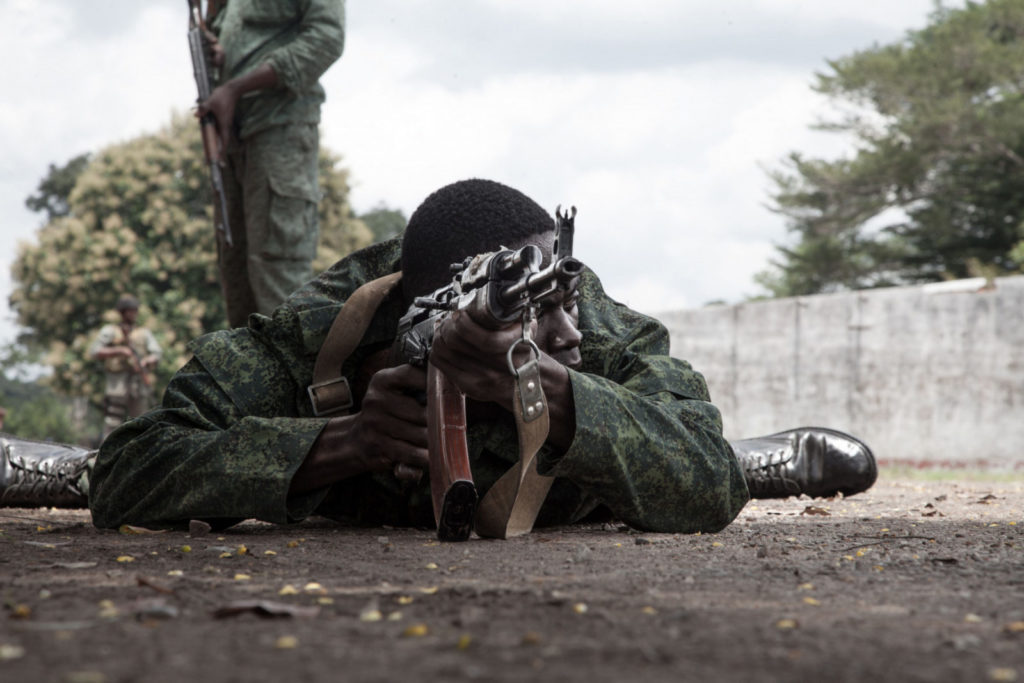The Central African Republic said Monday that Russia and Rwanda had sent in hundreds of troops after an alleged attempted coup ahead of weekend elections.
The government in CAR, one of the world’s poorest and most unstable countries, on Saturday accused former President Francois Bozize of fomenting a would-be putsch by three rebel groups.
The three groups on Friday started to advance on the capital Bangui along key highways after declaring an alliance, the government said.
The UN peacekeeping force MINUSCA announced on Sunday that the rebels had been stopped or pushed back and the situation was “under control.”
“Russia has sent several hundred soldiers and heavy weapons” under a bilateral cooperation agreement, government spokesman Ange Maxime Kazagui said. “The Rwandans have also sent several hundred men who are on the ground and have started fighting.”
Rwanda’s defense ministry confirmed the deployment.
It said the move was in response to the targeting of its troops in the 11,500-strong MINUSCA by rebels supported by Bozize, who ruled the CAR from 2003 to 2013.
No details were given about the deployment, but the ministry said it would “also contribute to ensure a peaceful and secure general election scheduled on Sunday.”
MINUSCA’s Rwandan contingent is notably in charge of the security of CAR President Faustin-Archange Touadera and the presidential palace.
Russian Role
There was no immediate confirmation from Moscow about the Russian deployment although the Kremlin said the situation in the country was of “serious concern.”
Moscow has been leading a vast diplomatic and financial offensive in the former French colony since 2018 in return for concessions to Russian firms to exploit minerals, particularly gold and diamonds.
Private security guards employed by Russian companies also provide protection for Touadera and are involved in training of local armed forces.
The alleged coup was mounted by three of the country’s most powerful militias. They said they had merged into a single entity called “the Coalition for Patriots for Change” and invited all other groups to join.
They began heading down the country’s main highways towards Bangui, according to the government. MINUSCA spokesman Vladimir Monteiro said late Sunday they had been pushed back in several locations or blocked, and “the situation is under control.”
But security and humanitarian sources said some members of the armed groups were still on the ground around Bossembele, around 150 kilometers (90 miles) from Bangui.
The so-called G5+ group — France, Russia, the US, the EU, and the World Bank — urged Bozize and allied armed groups to lay down their arms and called for the presidential and parliamentary elections to go ahead on Sunday.
Shadow of Bozize
Bozize, 74, who denies the coup plot allegations, has been a major figure in the country’s decades-long history of war and misery.
He slipped back into the country in December 2019 after years in exile, sparking fears that he planned to stage a violent comeback.
He retains a large following in the northwest of the country, especially among the Gbaya ethnic group, the country’s largest, and has many supporters in the army.
The former general came to power in a coup in 2003 before he himself was overthrown in 2013 by the Seleka, a rebel coalition drawn largely from the Muslim majority.
Christian and animist groups forged a so-called self-defense force called the anti-Balaka, and the country spiraled into conflict along largely sectarian lines before France intervened militarily.
After a transitional period, elections were staged in 2016 and won by Touadera.
Bozize has been barred from contesting the December 27 vote by the CAR’s top court as he is the target of a 2014 arrest warrant for alleged murder and torture and is under UN sanctions.
He says he has accepted the vote and threw his weight behind former Prime Minister Anicet-Georges Dologuele.
Weak Government
His absence from the poll has left Touadera the clear frontrunner in the 17-strong field of candidates. But his government holds sway over only around a third of the CAR’s territory.
The rest is in the hands of militia groups that typically claim to defend the interests of a given ethnic group, and often fight with each other over resources.
The CAR has known little stability since gaining independence from France in 1960.
Thousands of people have died since the 2013 coup, and nearly a quarter of the population of 4.7 million have fled their homes.



